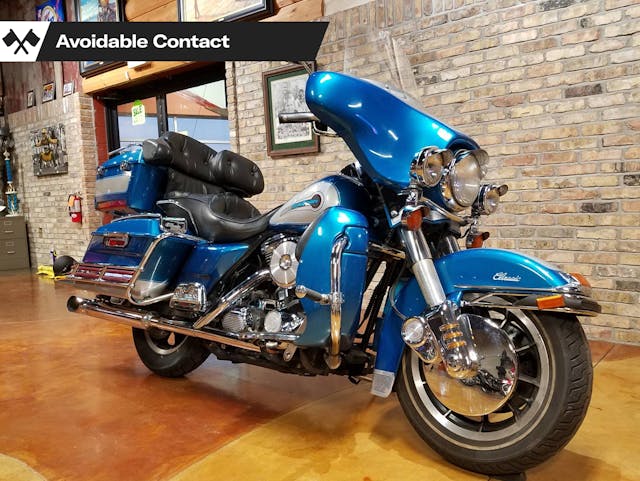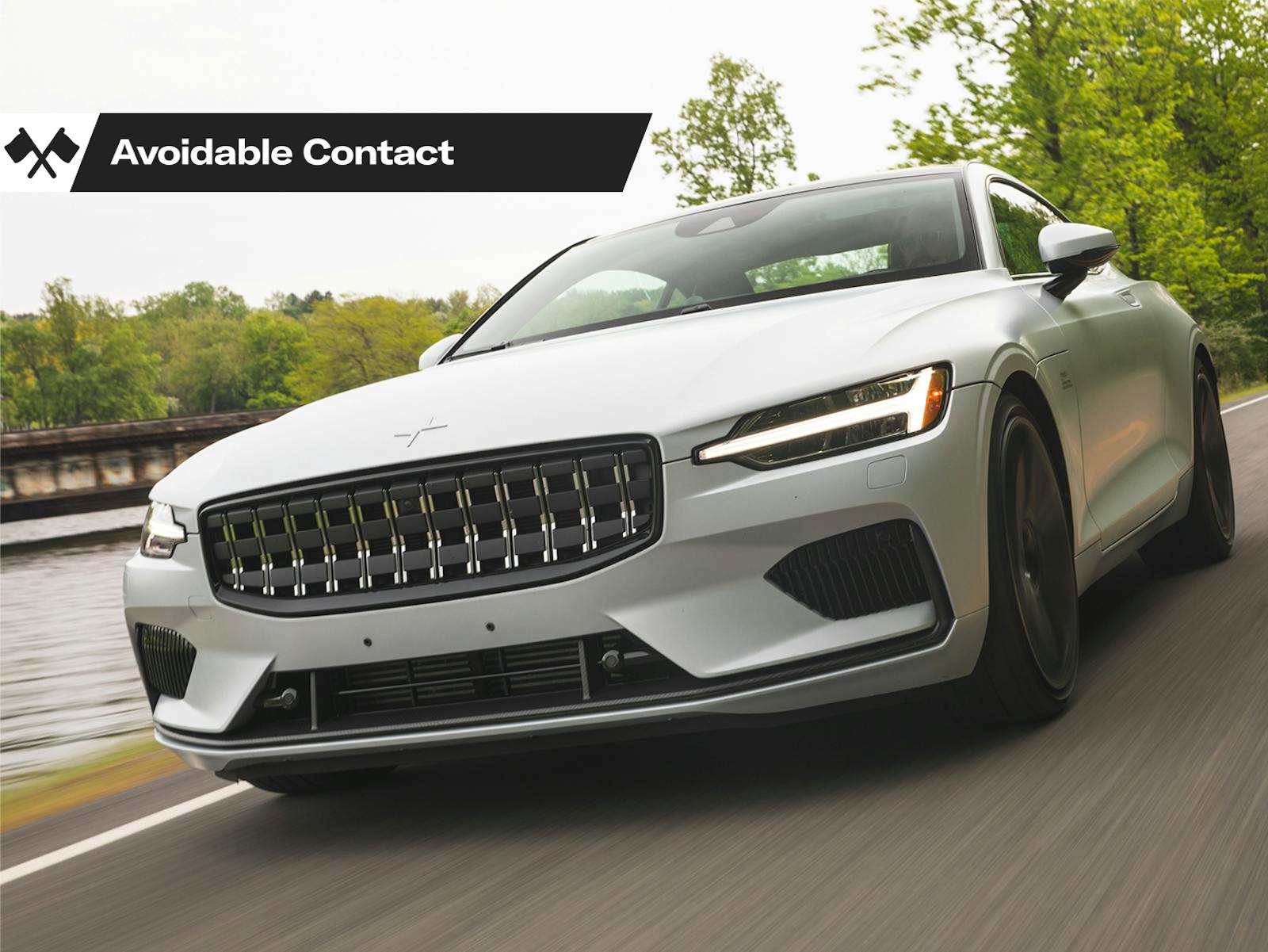Avoidable Contact #129: Why, man, he doth bestride the dealership like a Colossus

“When was the last time you saw George?”
“Oh, a while back. He was selling Buicks on the east side. Have you seen him since?”
“Not since, you know, he got in trouble and had to, ah, go away. It was drugs, you know.” Hearing this news, Rodney and I both nodded in a fashion meant to suggest no surprise whatsoever. It was last Wednesday, and we were sitting at the general manager’s desk of a rural dealership, ordering a truck for yours truly. (More on said truck when, and if, it arrives.) Why had we driven more than an hour each way to a three-car showroom in a 10-stoplight town, passing six similar dealerships on the way? Sentiment, and nothing more: The GM here had been the new-car sales manager at the Ford dealer where Rodney and I spent the summer of 1995 slinging a fusillade of Willow Green XLT Popular Equipment Package 945A four-door Explorers at the profoundly normal middle-class people of Clintonville, Ohio.
We were salesmen once, and young; I was 24, Rodney had just turned 30, and ’Toine, the sales manager, was 29. His name wasn’t actually ’Toine, but that was what Rodney called him. All of us ready to work 80 hours a week to make extremely modest money plus a rotating selection of cars to drive home. (My first dealer “demo” was a green F-150 XL regular-cab longbed, dual tanks, 300CI straight-six, automatic transmission, vinyl bench seat. Sticker price in the mid-15s. I treated it with the reverence some people show a McLaren F1 nowadays.)
This was the division of labor: I worked the college people and what ’Toine called the “hoity-toitys.” The kind of folks who would discuss Foucault or Paglia while buying a Taurus GL. I spoke their language, quite literally. Rodney handled the single mothers and African-Americans, since he was Black himself. And ’Toine? He was a hillbilly, born and bred in a 10-stoplight town, so he took the truck customers. He knew the Ford ordering book the way some people are said to know the Koran, and he had an unerring instinct for what people actually wanted to buy from dealer stock. In an era when a lot of stores turned inventory every hundred days or longer, we were at half that, even with a lot so small it would look overmatched holding a McDonald’s a decade later.
Together with the other four salesmen at the shop, we did a respectable business—but we also knew our place, and it was this: absolutely subservient to the legendary and mercurial general manager. Let’s call him George. He was the sort of person who is forgotten by no one, ever; six-foot-four, malevolent in his bulk, long black hair greased back from a face that was almost identical to that of the actor Ciaran Hinds. Some of you will know Hinds as “Mance Rayder” in the Game Of Thrones television show, but I remember him as Julius Caesar from the Rome miniseries.
Of Caesar, Shakespeare has Cassius say, Why, man, he doth bestride the narrow world / Like a Colossus, and we petty men / Walk under his huge legs and peep about. George occupied our showroom the same way; an unavoidable physical presence, clearly in command. The dealership principal, a man called “Droopy” behind his back for his uncanny resemblance to the cartoon dog of the same name, couldn’t look George in the eye, nor could he issue more than the mildest rebukes to him, which would always be met with naked defiance:
“Say, George, I see we paid … eighteen two for that ’94 XLT trade?”
“Don’t worry your pretty little head about it.”
“Ah, yes, but that’s a bit of load to put on something that won’t fetch fifteen at the auction …”
“(curtly) You pay me to deal with these things. Surely you have something else demanding your attention? A golf game, perhaps.” George treated everyone he met with an air of amused contempt. One fall afternoon Rodney and I were standing outside the front door when a nearly-new Range Rover pulled up. The man who got out looked like he’d fallen directly from the pages of a J. Press catalog. He breezed by us without so much as a glance and stopped at George’s desk. At that precise time, George had his massive feet up on said desk, reading a newspaper.
“I’m interested in …” the man began, but George cut him off at the knees.
“Well, I’m not.”
“You’re … not?”
“Not interested.” Rodney and I slipped inside to watch this play out.
“I don’t understand. You’re not interested in …”
“Let me say it slowly so you’ll understand. I’m not interested in helping you get out from under that piece of (expletive). Go sell it somewhere else, take a beating, then come back. We’ll sell you the same Eddie Bauer your neighbor has.” At which point Mister J. Press simply crumpled, slouching back out to his Range Rover. “The next time you see an upside-down idiot like that,” George said, pointing a long index finger at me, “I expect that you won’t let him bother me while I’m reading the paper.”
George always drove exactly the same dealer demo: a white Explorer XLT 945A. He always drove it for 3000 miles before handing it over to us for sale. And he always ran the same license plate, a private Ohio tag with a number I can see in my head, 26 years later. He did this because it was common at the time for people to call dealerships and complain about the behavior of “D-tag” cars. Near the end of an empty evening, Rodney asked him, “George, how is it legal for you to run a tag like that on a dealer vehicle?”
“The same way,” George replied, “it’s legal for you to mind your own (expletive) business.” He positively yearned for angry customers; as they screamed he would simply loom closer and closer to them until they calmed down, at which point he would all but whisper a few placating phrases in their direction. And that would be it. Although Rodney, ’Toine, and I existed in a constant state of aggravation with each other, and participated in at least three serious intramural shoving matches over the course of the 1995 model year, it never occurred to us that we could do so much as raise our voices to George.
He rode an aqua Harley Electra Glide Classic, and made it a point to ride all the way from central Ohio to “Bike Week” in Daytona every year. Even when it was snowing in the Midwest. Every Wednesday evening he would walk back in the service department and do whatever he did to “mellow out” before riding off into the night on the Harley. We didn’t ask where he went or why. His wife was the daughter of a famous dealer principal elsewhere in town. One night, the father-in-law called George to offer some advice on how to run a dealership. George had been drinking, and he wasn’t in the mood to hear it. He rode his Harley over to the man’s house and knocked him out on his own doorstep, with a single punch.
Cruel and vicious he could be, but he was also capable of great kindness. Earlier this year I found a blue blazer in my basement with his name embroidered into the lining; he’d watched me shivering in $19 dress shirts through a few winter days and had given me the sportcoat so I could “represent the dealership properly.” It fit perfectly; years later I would find out that he’d had it re-tailored for me, based on nothing but an eyeball appraisal. Before I married my first wife, he steered a half-dozen “house deals” from established dealership clients my way so I could afford to have a honeymoon.
Oh, and there was this: I was riding a 1986 Ninja 600R to work when I could, a $1600 purchase that started sputtering and misbehaving to the point that I sold it to our service writer for his lowball offer of 300 bucks. The service writer swapped out the battery and the fusebox, at which point it ran perfectly. He started riding it to work and bragging about how he’d taken advantage of “the dumb college kid at the front of the house.” George walked back, put the fellow up against the wall, and negotiated the return of the Ninja for $300, to be paid at some point in the future. Then he had the title work done in-house, so when I showed up that Saturday morning I had a motorcycle back in my name.
“In a perfect world,” George mused, “I would be allowed to beat that moron to death. But in this imperfect world … don’t miss the Saturday morning sales meeting because you’re out screwing around on your rice rocket.”
When I left the dealership for something I thought would be better, George allowed me to order a car and pay true invoice-minus-holdback for it. I never saw him again; although I would go on to work for BMW Financial, Honda of America, and other industry destinations, that was my last time on the real-world side of the car business. Rodney got fired shortly afterwards, over an incident that cannot possibly be edited enough to be palatable to the fine and decent people who read this digital magazine but which involved tossing someone down a flight of stairs. From then on we only heard about him at a distance, in stories that bore little resemblance to any likely reality: George had patched it up with his father-in-law and had bought the Chevy store. George was selling cars in New York as a sideline to dealing cocaine. George was a Rolls-Royce salesman. George was divorced and living in Canada.
This past week, ’Toine gave us some of the story, from his perspective. Some time in 2002, the dealer principal had come to him. “Why don’t we sell any cars on Wednesday nights?” ’Toine didn’t want to say, Because that’s when the general manager rides off in a cloud of smoke, so he mumbled something about staffing. That Wednesday night, Droopy went into the service department with an eye towards correcting George’s behavior. Nobody knows what happened, but ’Toine can still recall George looming over him afterwards. “Thanks for nothing,” George snapped, before walking out to his Harley for the last time.
“Supposedly he’s locked up for dealing … not cars, you understand.” I thought about it for a minute.
“Well, I’m surprised he’s still alive, you know?” Rodney and ’Toine looked at me like I’d started mumbling in tongues.
“Why wouldn’t he be?”
“Cause he was, you know, old back then.” The two men laughed. ’Toine looked at Rodney.
“You tell him.” Rodney turned his chair away from the order screen to face me.
“Jack … when I left, he was just 42 years old. He wouldn’t even be 70 now.” And it fit, once I really thought about it. He was florid with vitality, didn’t have a single grey hair, moved his massive frame like a cat. Of course he wasn’t old back then. He must have been 40 when he hired me; already at the top of his profession, thoroughly respected and even feared across the city. I remembered him with his feet up on a Saturday morning, talking about some dealership that had tried to poach him, and declaring to me: “I don’t get out of bed for less than 70 grand.”
I was very impressed by this; that was a year I made $22,800. But by the time I was 40 I was driving six-figure cars and burning through the Brioni section of Saks like a Steely-Dan-quoting tornado. I tried to make George smaller in my mind as a consequence: a small-time manager at a small-time dealer. Couldn’t do it.
On the way home I turned to Rodney and frowned. “Do you ever wish you were back there at the dealership with George and ’Toine, earning peanuts and feeling like kings of the world because you had a Windstar LX demo and the mornings free to sleep in? Do you ever wish you could just wake up and be there again, heading in for the Saturday sales meeting, knowing that we’d see something ridiculous happen before we closed at eight that evening?” Rodney curled his hands into light fists and looked down at them. When he spoke, there was sorrow thick in his voice.
“Every single day.”
“You know, we could go back and ask ’Toine for jobs. You and me. Catching the ups, digging people out of their trades, slinging what we have on the lot instead of what the buyers thought they wanted. Ordering demos and selling them out from under eachother, the way we used to do it.” For the space of a dozen rural miles we stared out of the windshield. Rodney coughed into his hands; there’s something more wrong with him than COVID, we both know it, we don’t discuss it much. Then he looked forward again, at the blank two-lane.
“It wouldn’t be the same. Not without George.”
“No, it wouldn’t,” I replied, and we finished the day in silence. I don’t know where George is, and I don’t know if he ever became what they call a “good person” nowadays, but I come to praise him, not bury him. The evil that he did never touched us; the good is interred within our bones.

